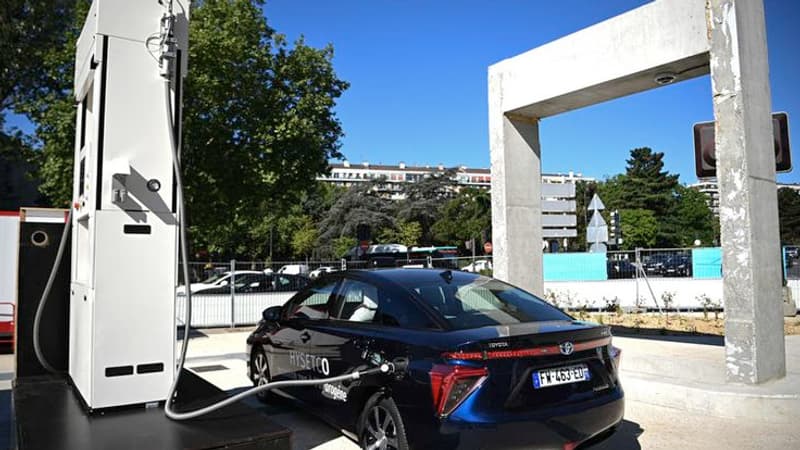We only talk about it for high-end models. However, synthetic fuel will soon power a Dacia. The one that will run the Dakar in 2025. Although the low-cost manufacturer Renault has just announced its entry into rally-raids, it has also announced that its racing car will run on e-fuel.
This synthetic fuel will be created by Aramco, based on hydrogen and carbon dioxide, for a fuel that combines performance and less impact on the environment. From the fuel cell, hydrogen gradually makes its way to the heat engine.
Fuel for heat engine
This is one of the paths explored by Toyota. A hydrogen pioneer with its Mirai, launched in 2015 and now in its second generation, the Japanese manufacturer is exploring a hydrogen thermal engine solution.
“We have been testing prototypes in which we have replaced gasoline or diesel in a thermal engine with liquid hydrogen for just over a year,” Frank Marotte, general director of Toyota France, explains to us at BFM Business.
This technology therefore differs from that used until then by Toyota in the Mirai, that of the fuel cell. In cars equipped with this technology, hydrogen powers the fuel cell where it reacts with oxygen in the air to produce electricity that is then used to drive an electric motor. In the hydrogen fuel powered car, hydrogen is used as fuel, injected into the engine cylinders and mixed with air. This mixture produces a controlled explosion that generates power to propel the car. This also requires a tank capable of carrying hydrogen and an exhaust line modification.
“It’s the same operation plus the same architecture of the car, which has a lot of benefits, and above all, you can potentially have one if we get it to the right price, it’s being able to potentially handle the entire fleet of vehicles,” continues Frank Marotte. .
This technology is of special interest in competition, as is the case of Toyota with its future prototype for the 24 Hours of Le Mans, the Toyota GR H2 or Alpine. The Renault sports brand is also studying this track for future competition models, in particular through its Alpenglow manifesto concept.
New generations of fuel cells
The fuel cell, however, has not said its last word. The other hydrogen pioneer, Hyundai, has offered a hydrogen SUV since 2018, the Nexo. A technical solution that is also taken up by BMW, which has just launched a fleet of large iX5 Hydrogen SUVs to test its new generation of batteries in real conditions, or last year by Jaguar Land Rover, which has also been testing a Defender prototype since 2021. fuel cell and therefore also runs on hydrogen.
French manufacturers have also entered this market, particularly for utility vehicles. The Stellantis group has been selling fuel cell light utility vehicles on the German and French markets for several months. The Citroën Jumpy, Peugeot Expert and Opel Vivaro were the models chosen to present this technology at Stellantis. The Renault group follows the same strategy with its subsidiary Hyvia, which markets fuel cell versions of different Master variants.
“We realize that we have to really accelerate in decarbonisation and particularly in the transport sector”, sums up Christelle Werquin, general delegate of the France Hydrogène association, in BFM Business. The technologies are mature and we are seeing a global dynamic at the hydrogen level. as a decarbonization vector in mobility as in other sectors”.
Source: BFM TV


